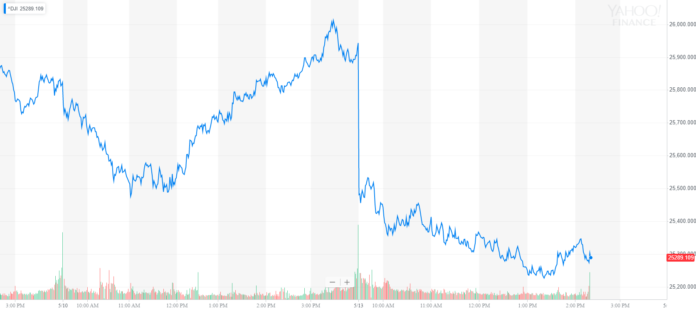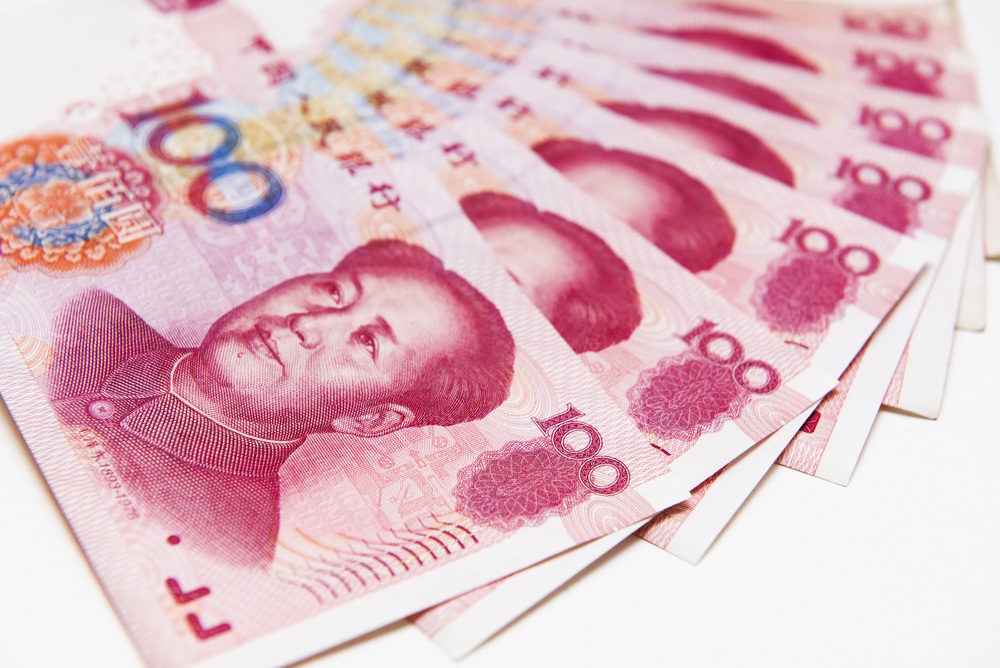[ad_1]
By CCN: The Dow and broader U.S. stock market crashed on Monday after China announced retaliatory tariffs on another $60 billion worth of American-made goods, escalating a brutal trade war that has taken the global financial system by storm.
Dow Collapses; S&P 500, Nasdaq Follow
All of Wall Street’s major indexes were on track for their worst drop of 2019, mirroring a brutal collapse for Dow futures in pre-market trading. The Dow Jones Industrial Average fell 656.44 points, or 2.5%, to 25,285.93. The blue-chip index was off more than 700 points earlier in the day.
The broad S&P 500 Index of large-cap stocks plunged 2.5% to 2,810.43. Six of 11 primary sectors fell by at least 2% while information technology and industrials fell 3% or more.
The technology-focused Nasdaq Composite Index plunged 3.3% to 7,659.97.
Yuan Collapse Threatens China’s Hand
China’s decision to escalate the tariff war not only sank U.S. stocks, it triggered a major collapse in its own currency, the yuan renminbi. The yuan plunged 0.8% against the dollar, reaching its lowest level since December. For its part, the U.S. dollar hasn’t caught on as a haven asset during the latest trade spat, as evidenced by the lackluster performance of the DXY dollar index.
Normally, a weaker yuan is welcomed by Chinese policymakers because it makes exports cheaper. In fact, the fall in the yuan this year has allowed China to offset almost all of the tariffs imposed by the Trump administration.
But as market contrarian bear Peter Schiff recently noted, a stronger yuan can actually help China destroy the U.S. in a trade war. That’s because a higher yuan increases the purchasing power of Chinese consumers, which allows them to buy more of the products no longer exported to the United States.
The best thing that can happen to China is that the yuan rises in value. This will increase the purchasing power of their own citizens, who can then buy the products no longer exported to America. Plus money no longer used to buy Treasuries can be invested in China instead.
— Peter Schiff (@PeterSchiff) May 13, 2019
Schiff also reminded investors the degree to which China has been subsidizing the U.S. economy:
The ignorance of the true nature of Sino-U.S. relations is staggering. China has been subsidizing the U.S. economy for decades by lending us money and supplying us with manufactured goods. When China withdraws the supports, our credit based service sector economy will implode!
— Peter Schiff (@PeterSchiff) May 13, 2019
A trade war with China is much more complicated than the Trump administration is making it out to be. Despite its massive trade deficit with China, the U.S. is a consumer-based economy where spending accounts for more than two-thirds of gross domestic product (GDP). For this reason, the Trump administration is unlikely to abandon the negotiations despite the recent tariff escalation.
Click here for a real-time Dow Jones Industrial Average price chart.
[ad_2]
Source link

